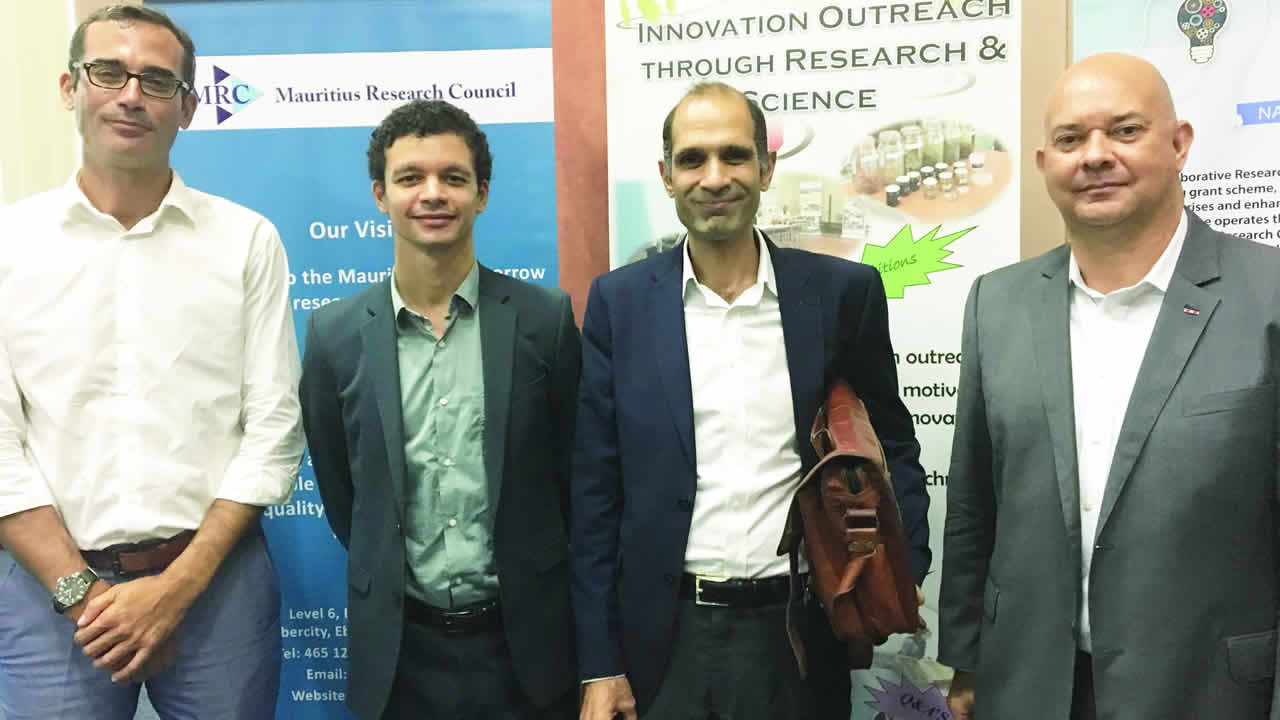
Deputy CEO of the Association of Mauritian Manufacturers, Bruno Dubarry shares with us his insight on the manufacturing sector, the challenges ahead and the need for a new strategy in the industry. He explained that Mauritius is such an open market that a local manufacturer is frequently competing locally with international products and brands. He believes that there is the need to analyse the situation as both a challenge and an opportunity. He calls for a collaborative approach in the Mauritian manufacturing sector.
What are the key economies to target right now in Africa, especially for Mauritian businesses?
The Association of Mauritian Manufacturers (representing the Domestic Oriented Enterprises - DOEs) is in a collaborative process to define an export roadmap for locally manufactured goods - and in a more distant term, which could be manufactured directly in these new markets with our know-how. It is a long run initiative, which excludes any quick win approach.
One interesting fact is that Mauritius is such an open market, that a local manufacturer is frequently competing locally with international products and brands. We must analyse this situation as both a challenge and an opportunity: preparing to go global calls for differentiation both on the domestic market and markets abroad. It is also about acknowledging that DOEs are to be reassured on their “natural” market before going global. Failing to tackle competitiveness from a combined perspective of domestic and export challenges might just maintain the manufacturing sector in a state of limited performance on exports.
We believe that starting with a common ambition for the Mauritian manufacturing sector (DOEs and EOEs) is the starting point of a successful export legacy. The work calls for a collaborative approach -where private sector organisations and public operators share common tools and agenda. The local industry is naturally inclined to focus on Eastern African countries, where several companies have established activities in the last decades and benefit of existing regional trade agreements (COMESA, SADC). Then again, this region is the nearest to Mauritius and conducting heavy infrastructural investments.
What are the difficulties that manufacturers are facing today?
The AMM and its partner organisations are well aware of the competitiveness disadvantages facing an island industry. A small-sized domestic market, the lack of equivalent level playing field with major industrialised economies and the cost of doing business (import of raw materials, etc) are some of the main factors that call for some sort of asymmetry regarding our country’s situation, planning our national economic development and conducting negotiations over foreign trade agreements.
Are we going towards the right direction? What is needed to boost manufacturers and the sector?
We believe that there is no getting around the fact that to offer a bright future for local entrepreneurs, who want to invest and succeed in productive activities, the primary condition is to have a supportive environment. This means that an entrepreneur needs visibility not only to start his business but to invest in his workforce, equipments and adapt to changes. It is precisely the lack of support in terms of adaptation to major changes in the last decades (removal of 94% of our tariff barriers) that has led over 130 industries to close down.
Still, our manufacturers are optimistic with regards to the needs of Mauritians and neighbouring populations. There is room for innovation and Mauritian creativity. The condition is to maintain and capitalise over the existing manufacturing ecosystem, from which new goods and services will emerge following international and local trends. Digital and ecologic transitions are the sort of drastic evolutions which await our manufacturing sector in Mauritius.
They require investments and new skills; both of which depend on the visibility given to the entrepreneurs. In that perspective, the AMM has identified its added value for local manufacturers with four thrusts leading to collaborative projects over the next three years: train, innovate, internationalise, maximise the social and environmental responsibility.
The manufacturing sector is a major pillar in the island. But will you say that there is the need for a new strategy in the manufacturing sector? And why?
For all the reasons mentioned, the manufacturing sector needs a national strategy. What the AMM strongly believes is that no entity is in the position to define alone this strategy.
It requires an in-depth collaborative work, with studies and experiments. We also believe that our 70 members and 80 with the Made in Moris label are the perfect sample for experimenting solutions before national projections.
The AMM has moved toward playing a role of Think and Do Tank in order to capitalise on the knowledge of its members and partners, connect the best expertise and network with the civil society. Our initiative was launched in 2017 after one year of consultations and crossed strategic analysis; under the calling ‘Team up for industry!’, our organisation has fully entered in an network era where all energies and expertise are collectively driven toward addressing the challenges of the manufacturing sector.
 J'aime
J'aime














